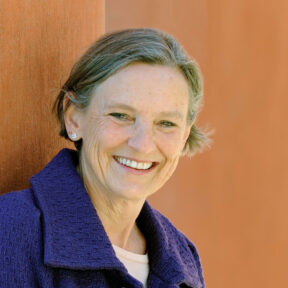
Lisa Anderson
: Photo from Wikimedia Commons / Author of Photo: Marmina abdelmalekOverview
* Professor of Middle East studies at Columbia University
* Fierce critic of Israel and the United States
A faculty member at Columbia University since 1986, political science Professor Lisa Anderson is the former President of the Middle East Studies Association. Described in her university biography as “one of this country’s most eminent scholars of the Middle East and North Africa,” Professor Anderson is the author of one book, The State and Social Transformation in Tunisia and Libya, 1830-1980. She has also been a contributor to the books of John Esposito, whose defense of Islamists in the past has been echoed by Anderson’s suggestion that “if Islamists” were given a voice and power, their violence and their putative threats would die down.
Anderson currently serves as the Dean of Columbia’s School of International and Public Affairs (SIPA) and co-chair of Human Rights/Middle East. She is also a member of the Council on Foreign Relations, the Carnegie Council on Ethics, and the Social Science Research Council.
In 2004 and 2005, Anderson raised some $4 million, almost entirely from Arab sources, for an “Edward Said Chair in Middle Eastern Studies.” Though Said was not a scholar of Islam or the Middle East, but a literary scholar and celebrated anti-Israel polemicist, Anderson nonetheless named the chair after him. She kept the sources of the chair’s funding secret for as long as possible, despite public criticism and even though New York State Law requires that such information be reported when it involves foreign funds.
To occupy the chair, Anderson selected Professor Rashid Khalidi, a longtime supporter of Yasser Arafat and onetime activist with the Palestine Liberation Organization, who depicts Israel as a “racist” nation that imposes “apartheid” on Palestinians. Professor Anderson reserved the chair for Khalidi until he could extricate himself from his position at the University of Chicago, explaining that she could not “honestly think of a better person to recruit to Columbia.”
Professor Anderson was also instrumental in helping Joseph Massad, who she had served as a Ph.D. advisor, to secure a teaching post at Columbia.
During Anderson’s tenure as Dean, the Columbia School of International and Public Affairs has held numerous events condemning the state of Israel. In September 2002, for instance, SIPA co-sponsored an African Studies Institute seminar called “South African Conversation on Israel and Palestine,” which likened Israel’s current social structure to the system of racial apartheid — even though the one million-plus Arab citizens of Israel enjoy more rights than the citizens of any Arab state.
Professor Anderson is a fierce critic not only of Israel, but also of the United States. She views the 9/11 attacks as the Muslim world’s response to “the fact of American political power in the world, and the fact of inequitable distribution of power within the United States.” When writing about the “war on terror,” Anderson places those words in sneer quotes to convey her belief that the term is nothing more than a pretext for American empire-building by means of serial invasions. Casting the U.S. as an unprovoked aggressor in this war, she characterizes the American military operations in Afghanistan and Iraq as an “assault on the entire region” and an attempt “to rewrite the map of the entire area.”